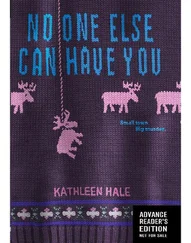Under my curious gaze the policeman composed himself and then politely rang the doorbell, as if he was just paying a visit. I wondered if perhaps Mum and Dad had been arguing again and neighbours had rung to complain about the noise or to express their concern for Mum’s safety. I decided I wasn’t going to interfere, in case it was Dad who came to the door; I would leave it to the policeman to sort it out.
Dad had often threatened to hang himself or set fire to the house with us all in it. It might sound melodramatic but I believed anything was possible as far as he was concerned. Maybe this time he had actually carried out one of his threats and Mum had had to call the police. Isobel and I were so worried about his threats to set fire to us that before we went to bed at night we used to try to find all the matches in the house and hide them – which was pointless really as we had no idea what Dad kept inside his room. We had never been allowed inside the upstairs bedroom where he spent most of his days and nights; we didn’t even have any idea what it looked like in there.
A few seconds after the policeman rang the bell, the door opened and Dad was standing there, holding it wide open and giving the officer a clear view right through to the kitchen at the back of the house. I was over to the side so I couldn’t see past them. Dad didn’t seem at all surprised to find a uniformed policeman standing on his doorstep; it was as if he had been expecting him. He’s a big guy, quite scary-looking, with a mean expression permanently set on his face. Whatever the policeman was able to see from there was enough to make him step back in shock and fumble for his radio, bringing it up to his mouth.
‘There’s been a blue murder,’ he announced to whoever might be listening at the other end.
I was momentarily puzzled by the phrase. ‘Screaming blue murder’ just meant screaming at the top of your voice, as far as I was aware, but maybe this was police code for something else – or had I not heard him correctly? The policeman certainly looked very shaken and it was more because of his agitation than anything else that I guessed someone was dead in the house. My throat felt tight, but I continued to sit where he had told me, not saying a word, just watching and waiting, trying to work out what was going on and what I should do about it. That was how I reacted to most things. The policeman seemed to have forgotten I was there, or at least he didn’t look in my direction. He stepped back from the door and peered anxiously down the road.
For a few minutes nothing happened and then the eerie quiet of the afternoon was shattered by screeching tyres and brakes as another squad car arrived and disgorged four more officers. I could hear further vehicles arriving behind them, stopping wherever they could, filling the street. Now there was a real sense of urgency buzzing all around me as I sat on the wall and waited for someone to tell me what I should do. I kept wondering where Mum was, but at the same time not wanting to think about the possible answer to that question. Please no.
Dad was still standing in the doorway as if he had been expecting the police all along and he didn’t protest as one of the policemen read him his rights. ‘You do not have to say anything. But it may harm your defence if you do not mention when questioned something which you later rely on in court.’ Dad didn’t struggle as they searched him; he raised his arms to let them pat down his jeans and t-shirt top. They removed a knife from his jeans pocket, handling it carefully as if it was something precious.
‘Can I say something to my son?’ Dad asked them, glancing over towards me for the first time.
‘You should have thought of that before,’ the senior officer said and I was quite relieved. I couldn’t imagine that I would want to hear anything he might have to say to me at that stage. I never wanted to hear anything he said, in fact. It felt good to have the protection of the policemen, but I just wished I understood why they were swarming all over us now when they had never done anything to help us before, on any of the occasions when Isobel had called them because Dad was being violent.
I watched from the wall as they led Dad out of the house. Several policemen formed a kind of ring around me and I got the impression that they thought I might try to go with him, but they needn’t have worried; I wasn’t intending to go anywhere, certainly not with Dad. They led him to the second police car and bent him down so he could slide into the back seat. I watched as the shiny bald crown of his head disappeared inside. By that stage seven more police cars had arrived, as well as five unmarked cars, two ambulances and a paramedic car. It was hard to imagine where they could all have come from to get there so quickly. Had they just been sitting around waiting for something to do? The whole street was jammed solid with vehicles.
None of the police said anything to me, all of them apparently too busy trying to work out what they should be doing. I was just waiting for Isobel to get there because she would know what we should do; she would talk to them and find out what was going on. I could always rely on Isobel. Where on earth was she? A few minutes later, I was filled with relief when I saw her familiar figure turning into the road.
Chapter Two
The greatest mystery is why Mum and Dad ever got together in the first place because Alex and I never saw the slightest sign of any bond of affection or attraction between them. Even when couples have been worn down by years of money worries, job worries and family worries, you can usually see some remnants of the love that must once have been there – but not with our Mum and Dad. You could see that Mum wanted to please him, but only because she was frightened of what he would do if she didn’t, and because she wanted a quiet life more than anything else. He, on the other hand, could never hide his loathing of her for even a second and took great pleasure in making her life as difficult as possible.
If there was any sort of romance or love story in their background, neither of them ever mentioned it to Alex or me, and there’s no one else we can ask because there are no other family members who knew them when they were young. Our family was never very good at talking about emotions or soul-searching. We all just got on with the business of daily life, pushing unpleasant thoughts to the backs of our minds in the hope they would go away if we ignored them for long enough.
The only source of information we have about the past is Jillian, who was Mum’s good friend at the school where she taught for twenty-three years, and one of the very few people to whom she ever confided any of those sorts of secrets. Mum didn’t believe in sharing personal information with anyone unless she had to. She kept everything locked inside her head, probably trying to forget most of it herself. Several teaching colleagues who had known her for twenty years or more didn’t even realise she was married, although they knew all about Alex and me and our achievements. She wouldn’t have encouraged conversations about her marriage and there certainly wasn’t anything nice she could say about Dad. I know she wouldn’t have wanted to let anyone else know that her personal life was a horrible nightmare.
As far as we could see, Mum and Dad were totally unsuited to one another, and Dad was totally unsuited to family life in any form at all. He should probably never have married and he should certainly never have had children. Of course we didn’t realise that when we were young; we assumed lots of fathers behaved the way he did. Our friends’ dads were at work most of the time so we didn’t have much contact with them; our social world was largely made up of other children and their mothers, so the fact that our Dad remained locked inside his bedroom most of the time didn’t seem particularly odd to start with. It was just the way things were done in our house.
Читать дальше












